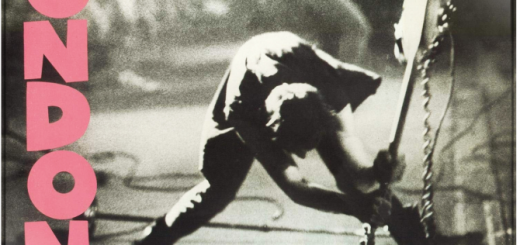Career Opportunities by The Clash Lyrics Meaning – Dissecting the Anthem of Disillusioned Youth
Lyrics
They said I’d better take anything they’d got
Do you wanna make tea at the BBC?
Do you wanna be, do you really wanna be a cop?
Career opportunities, the ones that never knock
Every job they offer you is to keep you out the dock
Career opportunities, the ones that never knock
I hate the army and I hate the RAF
I don’t wanna go fighting in the tropical heat
I hate the civil service rules
I won’t open letter bombs for you
Career opportunities, the ones that never knock
Every job they offer you is to keep you out the dock
Career opportunities, the ones that never knock
Oi!
Bus driver
Ambulance man
Ticket inspector, I don’t understand
They’re gonna have to introduce conscription
They’re gonna have to take away my prescription
If they wanna get me making toys
If they wanna get me, well I got no choice
Career opportunities, the ones that never knock
Every job they offer you is to keep you out the dock
Career opportunities, the ones that never knock
Career, career
Career, it ain’t never gonna knock
The Clash’s ‘Career Opportunities’ is not just a punk anthem; it’s a seething, pulsating beacon of youthful dissent. Released in 1977 as part of their eponymous debut album, the song serves as a megaphone for the frustrations and grim realities faced by the working class in Britain. It’s a raw outcry against the dead-end jobs and the oppressive societal structures that lead to a life of unfulfilled potential.
At its core, ‘Career Opportunities’ is more than a critique of employment prospects; it’s a rebellion against the loss of choice, autonomy, and the crushing weight of predetermined destinies. The lyrics, penned by Joe Strummer and Mick Jones, resonate with an undeniable urgency that still echoes the sentiments of disillusioned generations today.
The Youthful Cry Against Conformity
Strummer and Jones crafted ‘Career Opportunities’ as a battle cry for those trapped in the societal machine that cranks out one’s future without consent. The repetitive chorus of ‘the ones that never knock’ serves as a grim reminder of the few choices left for the marginalized youth. The Clash encapsulates a moment in time when the future seemed to be written not by the individual’s aspiration but by the needs of a system that favors compliance over creativity.
The repetitiveness of the chorus is not merely a lyrical choice; it is an artistic representation of the monotonous reality faced by the working class. The song’s velocity mirrors the relentless, crushing pressure to settle for less, a testament to the band’s ability to give a voice to the voiceless with both words and rhythm.
The Hidden Meaning Behind ‘Making Tea at the BBC’
Beneath the driving guitar riffs lies a stinging satire of institutional drudgery with the invitation to ‘make tea at the BBC.’ The BBC, being Britain’s broadcast giant, symbolizes the establishment. To make tea is to accept a position of servitude within a larger, impersonal entity—a microcosm of the power structures at play. Thus, the song poignantly questions whether one truly desires to partake in the existing hierarchy or become an enforcer of its rules, like ‘being a cop’.
The notion of ‘making tea’ is also a metaphor for the smaller, menial tasks that society hands out to its youth as a placeholder, instead of providing meaningful opportunities to engage with the world through work that aligns with one’s passions and abilities.
Rejecting the Military-Industrial Complex
The Clash’s indictment of the armed forces and civil service is a potent narrative against the military-industrial complex. In openly declaring ‘I hate the army and I hate the RAF’, the song aligns itself with the peace movement of the time and the broader cultural rejection of war and mandatory service. It underscores the betrayal of sending the youth to conflict zones under the guise of career opportunities.
Their disdain for ‘civil service rules’ and the morbid task of ‘open[ing] letter bombs’ expands their critique to a bureaucratic system that offers not only soul-sucking routines but potentially life-threatening roles. ‘Career Opportunities’ articulates the existential dread of embodying roles that go against one’s ethical grain.
Memorable Lines: Constriction and Prescription in Suburban Britain
‘They’re gonna have to introduce conscription / They’re gonna have to take away my prescription’. In these lines, the band captures the impending squeeze of compulsory service, simultaneously nodding to the use of pharmaceuticals as a means to cope with, or escape from, the oppressive nature of contemporary life. The dreaded conscription becomes a metaphor for the lack of freedom in choosing one’s path, and ‘prescription’ implies the numbing of personal agency.
The song’s brevity, filled with such compact, evocative lines, mirrors the concise, punchy nature of punk rock itself, serving truth with a raw, undiluted force that demands attention and contemplation.
Why ‘Career Opportunities’ Still Resonates Today
‘Career Opportunities’ transcends the era of its conception and continues to resonate as a commentary on modern work culture. It is a timeless reflection of individual potential stifling within the confines of societal expectation. As automation and gig economies reshape the modern workplace, the song’s challenge to the status quo remains relevant, asking what it means to have meaningful work and how we as a society fail or succeed in providing it.
The song remains a touchstone for those navigating the chaos of career paths in a world where opportunity doesn’t always ‘knock’ and the choices presented often feel as constrained as they did in Strummer and Jones’ day. ‘Career Opportunities’ endures as a stark reminder to reckon with what we offer the next generation—a call to action as urgent now as it was over four decades ago.








